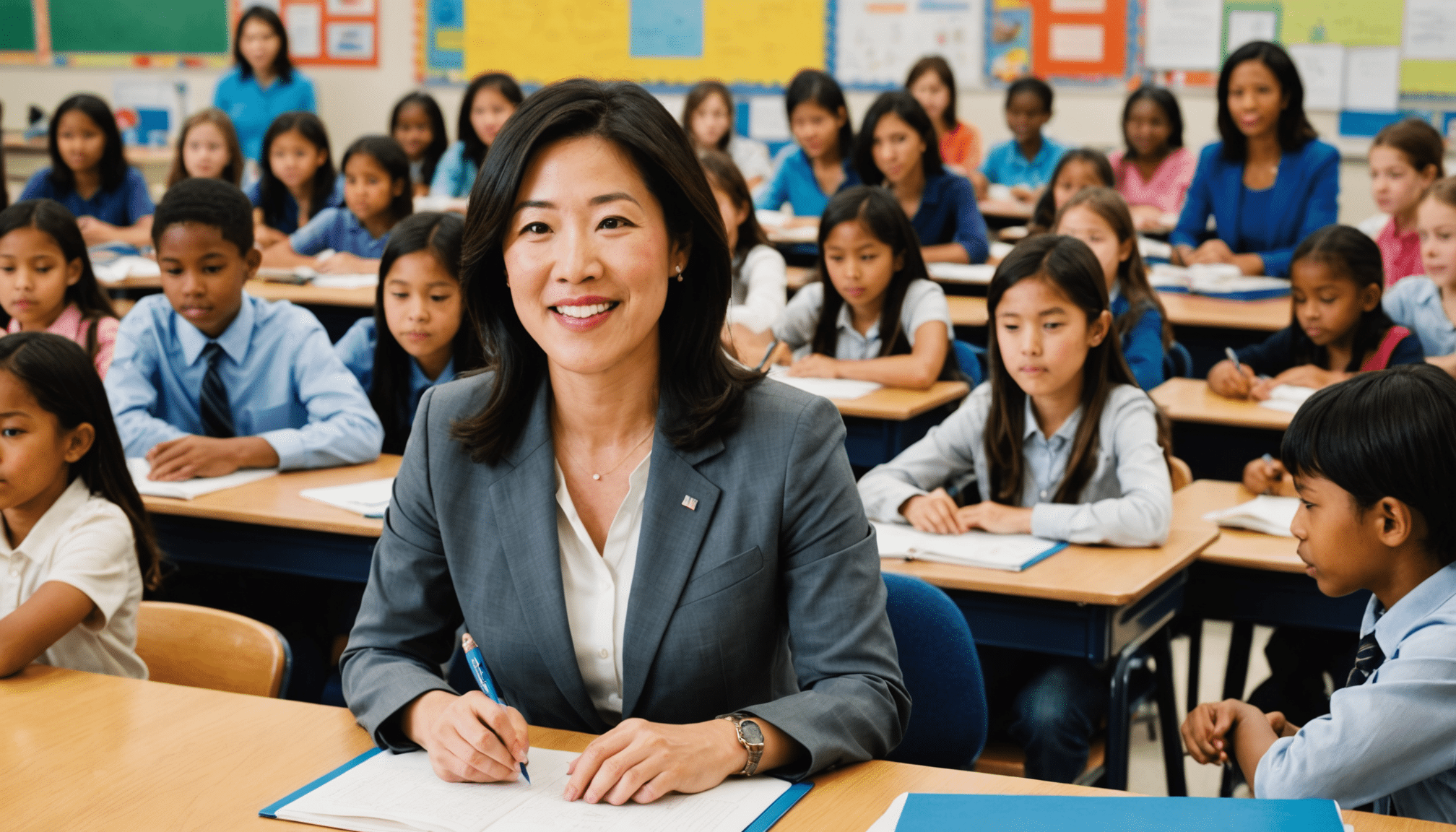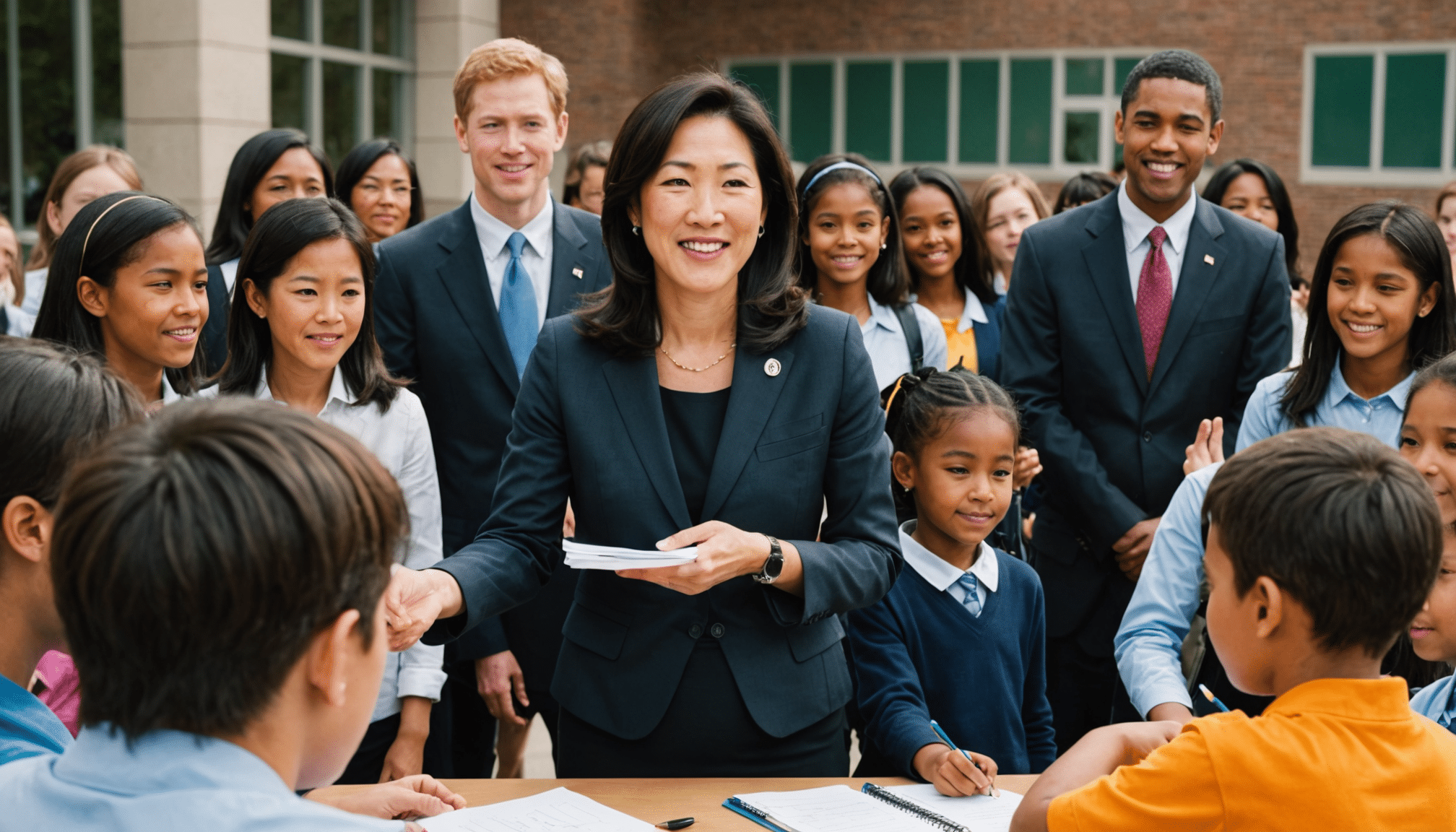Michelle Rhee is an iconic figure in the Washington D.C. educational system, having implemented bold and controversial reforms. As Chancellor of the public schools, she undertook radical actions to address a struggling system characterized by disappointing academic results. Her vision, centered on improving the quality of education, led to the closure of schools deemed ineffective and the strict evaluation of teachers, provoking both support and opposition. Rhee has profoundly impacted the educational landscape of the city, leaving a contested legacy that continues to fuel debates about the future of public schools.
Summary on Michelle Rhee and Her Impact
Michelle Rhee, appointed chancellor of the public schools in Washington D.C. in 2007, has been a controversial figure in the field of educational reform. Faced with a struggling school system, marked by poor test results and safety concerns, she initiated radical changes. Rhee began by closing underperforming schools and implemented a teacher evaluation system called IMPACT, which assessed their performance based on student outcomes. Although her actions drew criticism from teachers’ unions and parents, she was also praised for bringing significant improvements in certain schools, thereby increasing focus on educational issues in Washington.

In 2007, Michelle Rhee was appointed chancellor of the public schools of Washington D.C. With a clear vision for reform, she undertook profound transformations in a struggling educational system. At that time, student test results were alarming, and concerns about safety and student attendance were prevalent. Rhee quickly realized that rapid and targeted change was necessary to improve the quality of education. Her methods, though controversial, aimed to establish an environment conducive to learning and the flourishing of young people.
Rhee’s Reforms: A Radical Change
Under her leadership, difficult decisions were made, such as the closure of underperforming schools. This approach drew mixed reactions from parents and teachers. Rhee also sought to elevate the teaching profession by implementing a more rigorous evaluation system. Teachers were assessed based on their effectiveness, and those deemed “ineffective” by the IMPACT system could lose their positions. This method, despite its results, sparked a shockwave in the educational community, fueling debates about justice and equity within the public system.
The Legacy of Michelle Rhee
Rhee’s work has left a complex legacy. While studies have shown that some reforms led to improvements in academic performance, the consequences of her decisions remain contentious. Reports indicate that progress had been made before her resignation in 2010, but doubts emerge regarding the sustainability of these gains. For those who support Rhee, her leadership brought necessary changes to a crisis-ridden educational system. However, others criticize her radical methods and the impact of these reforms on the most vulnerable communities. Debates surrounding her tenure continue to question the future of education in Washington D.C.











